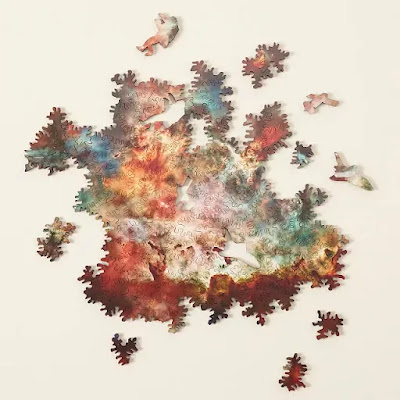There was a television show in the late 1950s/early 1960s, a police drama called Naked City. It was unusual, in that each episode focused not so much on the show's regular characters, detectives at the 65th Precinct in Manhattan, but on each week's criminals and victims, played by guest stars.
These guest stars included many well-known actors of the time and many relatively unknown players who would go on to become recognized stars of movies and TV. (See the impressive long list in the show's Wikipedia entry.)
If I watched this show, it was probably in reruns, and I may only have been aware of my father watching it in the Bronx apartment where I grew up. In any case, I don't really remember anything about the show, except for the tagline that ended each episode and that has stuck with me for 60+ years:
"There are eight million stories in the naked city. This has been one of them."
You may be thinking, "What does this have to do with Brookline history?" Brookline, where I've lived since 1996, is not New York City. Its population reached an all-time high in the 2020 Census, but that number is 65,000, not eight million.
But the history of Brookline -- the history, in fact, of any community, old or new, large or small, urban or suburban or rural -- is made up of many people, many places, many events, many stories, big and little, that together tell the broader history of a place.
I started this blog in 2009, the year I became head of the Brookline Historical Society. The idea was to post little tidbits, interesting Brookline items I came across while researching something else and didn't want to lose.
My first post was sparked by a small 1903 newspaper article about a Brookline man named William Shaw demonstrating his electrical inventions -- an alarm clock, a baby monitor, even a telephone -- that could be used by the deaf or hearing-impaired. (Shaw himself had lost his hearing at age 5 after a bout of meningitis.)
 |
| Boston Transcript, October 20, 1903 |
The idea was to post just a few paragraphs so that the story could be shared, not lost. But as I dug into the story of William Shaw, I found there was much more to tell. I found newspaper articles about him and his inventions in papers not just in Boston, but across the U.S. and Canada and even as far away as New Zealand.
 |
| Click image for larger view |
I obtained a photograph of him from the American School for the Deaf in Connecticut, which he attended as a boy, and pictures and articles from a newspaper called The Silent Worker. My little "tidbit" turned into a long, illustrated 1,000-word article that included his contacts with Alexander Graham Bell and Thomas Edison and his role at the center of a court case about the rights and abilities of deaf parents to raise hearing children. (You can read the whole thing here: Deaf Inventor Aids the Deaf)
And that has been the pattern ever since: in the 120 or so posts I've written for this blog; in the Brookline history walking tours and presentations and videos I've developed and delivered over the years; in the stories I uncover and share. I've even brought back the original idea of short posts in a new blog called This Week in Brookline History (TWIBH), featuring four short, illustrated stories each week.
I've been asked if I might write a book, a history of Brookline. There have been several published, the earliest in 1873 and the most recent in 2018. I've considered it, but I'm having too much fun doing what I do, digging into different aspects, large and small, of the town's history and sharing them with others.
I think of it like a montage or maybe, in one of my favorite ways to describe my research, like a jigsaw puzzle with no border. It tells a story whose ever-changing tale depends on which way you're looking at it. That's something I plan to continue doing, uncovering and telling tales for others to discover, learn from, interpret, and reshape, today and in years to come.
